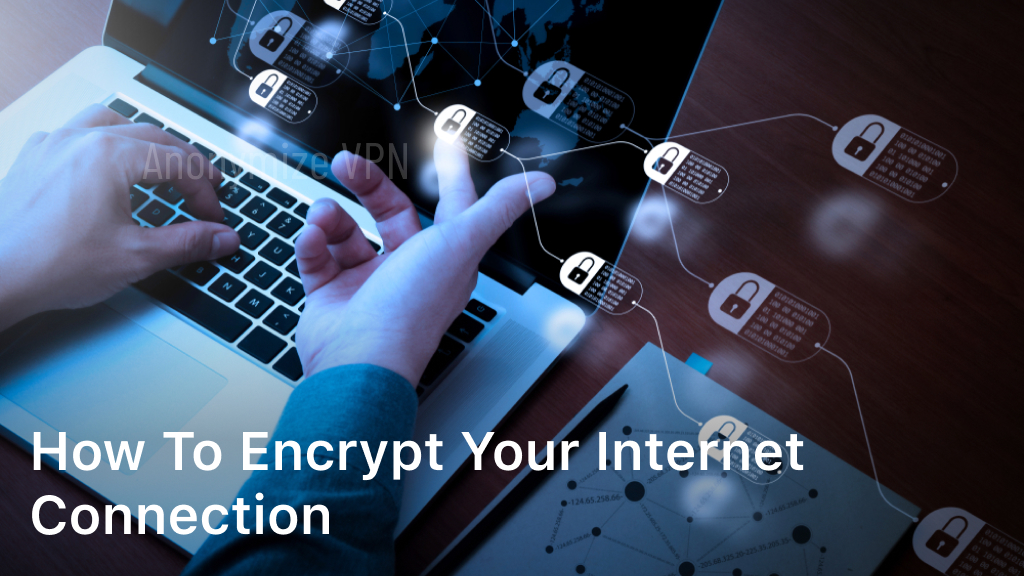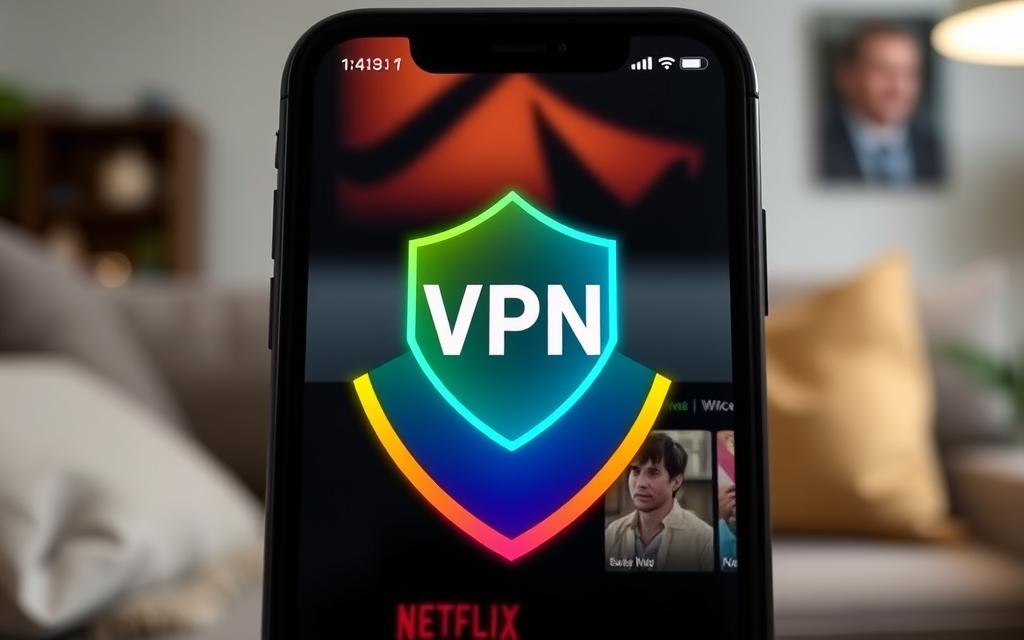How To Encrypt Your Internet Connection
Welcome to our expert guide on how to encrypt your internet connection, a crucial step in ensuring online security and protecting your data privacy. In today’s digital landscape, where cyber threats continue to evolve, it is more important than ever to safeguard your online activity.
Encryption is the process of converting your data into a secure format that can only be accessed with the appropriate decryption key. By encrypting your internet connection, you can prevent unauthorized access to your personal information and ensure that your online activity remains private and secure.
In this article, we will provide you with step-by-step instructions and expert tips on how to encrypt your internet connection effectively. From understanding the importance of internet security to choosing the right encryption software, we will cover all the essential elements to help you enhance your online privacy.
So, if you’re ready to take control of your internet security and safeguard your data privacy, let’s dive in and explore how to encrypt your internet connection.

Why is Internet Security Important?
In today’s digital landscape, internet security is more important than ever. With increasing cyber threats and risks, it is crucial to prioritize the protection of your online activity and data privacy. By understanding the potential dangers and staying vigilant, you can safeguard yourself against various cyber attacks.
One of the primary reasons internet security is important is to protect your personal information from unauthorized access. Cybercriminals are constantly seeking ways to exploit vulnerabilities in internet connections to steal sensitive data such as credit card numbers, passwords, and personal identities.
Moreover, internet security ensures the security of your online transactions and financial information. Whether you are shopping online, banking, or conducting any other sensitive transactions, a secure internet connection guarantees that your data remains confidential and protected from interception. This is especially crucial when it comes to protecting your financial assets and preventing identity theft.
Additionally, maintaining internet security is essential for safeguarding your privacy. Your online activities and personal information should remain private and not be exposed to third parties without your consent. With the increasing amount of data being collected and shared online, preserving your privacy becomes even more significant.
Lastly, internet security plays a vital role in preventing cyber attacks that can disrupt your daily activities and potentially lead to financial loss or damage. Malware, viruses, and ransomware can infect your devices and compromise your data, making it essential to have robust security measures in place to protect yourself from such threats.
To ensure internet security, it is important to follow cybersecurity tips such as using strong and unique passwords, regularly updating your software and operating systems, and being cautious of suspicious emails or websites. By implementing these measures, you can enhance your online safety, protect your data privacy, and mitigate the risks associated with internet usage.
| Benefits of Internet Security | Risks of Poor Internet Security |
|---|---|
|
|
Understanding VPN Encryption
Virtual Private Network (VPN) encryption is a powerful tool for securing your internet connection and safeguarding your online privacy. By encrypting your data, VPNs create a secure tunnel between your device and the internet, preventing hackers, ISPs, and even government agencies from intercepting and accessing your sensitive information.
So how does VPN encryption work? When you connect to a VPN server, all of your internet traffic is encrypted using complex algorithms. This encryption ensures that your data remains unreadable and keeps your online activities hidden from prying eyes. VPN encryption protocols, such as OpenVPN or IPSec, provide different levels of security and can be customized based on your needs.
Using a VPN with strong encryption has numerous benefits for your internet security and data privacy. Firstly, it adds an extra layer of protection when accessing public Wi-Fi networks, as VPN encryption prevents eavesdroppers from intercepting your data. Additionally, VPNs allow you to bypass geo-restrictions and access online content from anywhere in the world while keeping your identity anonymous.
When choosing a VPN provider, it’s crucial to select one that offers robust encryption. Look for VPNs that use advanced encryption algorithms, such as AES-256, which is considered virtually unbreakable. Additionally, check if the VPN provider has a strict no-logs policy to ensure that your online activities are not being recorded.
Benefits of VPN Encryption:
- Enhanced Privacy: VPN encryption protects your online activities and ensures that your personal data remains private.
- Data Security: By encrypting your internet connection, VPNs prevent unauthorized access to your data, safeguarding it from cybercriminals.
- Bypassing Censorship: VPN encryption allows you to access restricted websites and content by masking your IP address and location.
- Secure Remote Access: VPNs with encryption enable secure remote access to company networks, ensuring confidential data is protected.
- Offshore Privacy: VPN encryption allows you to browse the internet as if you are in a different country, protecting your privacy from local surveillance.
In summary, VPN encryption is an essential tool for anyone concerned about internet security and data privacy. By encrypting your internet connection, you can browse the web with confidence, knowing that your personal information remains secure and your online activities remain private. Choose a reputable VPN provider that offers robust encryption protocols to ensure the highest level of protection.
Choosing the Right Encryption Software
In today’s digital landscape, where internet security and data privacy are paramount, selecting the right encryption software is crucial. With several options available in the market, finding the software that aligns with your specific needs can be overwhelming. That’s why we’re here to guide you through the process and help you make an informed decision.
When considering encryption software, there are a few key factors to keep in mind:
- Security Features: Look for software that offers advanced encryption algorithms and protocols, such as AES-256, OpenVPN, or IPsec. These ensure that your data remains secure and protected from potential threats.
- User-Friendly Interface: Choose software that is intuitive and easy to use. A simple and straightforward interface will enable you to encrypt your internet connection without any hassle.
- Compatibility: Ensure that the encryption software is compatible with your operating system and devices. Whether you’re using Windows, macOS, Android, or iOS, make sure the software supports your preferred platforms.
- Reliability and Reputation: Opt for software from reputable providers known for their expertise in internet security. Read reviews, check user testimonials, and assess the provider’s track record to ensure you’re choosing a reliable solution.
By considering these factors, you can narrow down your options and select the encryption software that suits your internet security and online privacy needs best.
| Encryption Software | Security Features | User-Friendly Interface | Compatibility | Reliability and Reputation |
|---|---|---|---|---|
| Example Encryption Software 1 | Advanced encryption algorithms and protocols | Intuitive and easy to use | Compatible with Windows, macOS, Android, and iOS | Reputable provider with positive reviews |
| Example Encryption Software 2 | Strong encryption methods for data security | Simplified interface for seamless encryption | Supports multiple operating systems and devices | Highly regarded provider with a trusted reputation |
| Example Encryption Software 3 | Robust encryption protocols for enhanced privacy | User-friendly interface for easy navigation | Works seamlessly across various platforms | Long-standing provider with a proven track record |
Remember, choosing the right encryption software is essential for safeguarding your internet security and maintaining online privacy. Take the time to evaluate your options and select a trusted solution that meets your specific requirements.
Best Practices for Secure Browsing
Encrypting your internet connection is a vital step in ensuring online security and protecting your data. However, it’s not the only measure you should take to maintain a secure online presence. In this section, we will provide you with best practices for secure browsing to further enhance your internet security and protect your online data.
1. Create Strong Passwords:
Choose passwords that are complex, unique, and difficult to guess. Use a combination of uppercase and lowercase letters, numbers, and special characters. Avoid using easily guessable information like your name, birthdate, or common words.
2. Use Two-Factor Authentication (2FA):
Enable two-factor authentication whenever possible. This adds an extra layer of security by requiring users to provide an additional verification method, such as a temporary code sent to their mobile device, along with their password.
3. Be Cautious of Phishing Attempts:
Phishing is a common technique used by hackers to trick users into revealing sensitive information, such as passwords or credit card details. Be wary of any emails, messages, or websites that request personal information or contain suspicious links. Always verify the source before providing any sensitive data.
4. Keep Software Updated:
Regularly update your operating system, web browser, and any other software or applications you use. Software updates often include security patches that address vulnerabilities and protect against potential threats.
5. Use a Firewall:
Enable a firewall on your device to block unauthorized access and protect your network from malicious activities. Firewalls act as a barrier between your device and the internet, monitoring and filtering incoming and outgoing traffic.
6. Be Mindful of Public Wi-Fi:
When connecting to public Wi-Fi networks, be cautious about the information you access or transmit. Public networks are often unsecured, making it easier for hackers to intercept your data. Avoid accessing sensitive information or using online banking or shopping websites while connected to public Wi-Fi.
By incorporating these best practices into your browsing habits, you can significantly improve your internet security and protect your online data from potential threats.
Enhancing Network Security
When it comes to encrypting your internet connection, network securi
Conclusion
In today’s increasingly connected world, encrypting your internet connection is more important than ever. By following the expert tips provided in this article, you can take proactive steps to maintain your privacy and protect your online data.
Utilizing encryption software, such as VPN encryption, adds an extra layer of security, making it difficult for hackers and cybercriminals to intercept and access your sensitive information. Additionally, enhancing your network security through measures like firmware updates, secure Wi-Fi networks, and firewalls further fortifies your defenses against potential threats.
Remember, internet security should be a top priority for individuals and businesses alike. By prioritizing the protection of your personal and confidential data, you can navigate the digital landscape with greater peace of mind and confidently engage in secure browsing practices.
FAQ
How can I encrypt my internet connection?
To encrypt your internet connection, you can use a VPN (Virtual Private Network) or HTTPS (Hypertext Transfer Protocol Secure) protocols. A VPN creates a secure tunnel between your device and the internet, while HTTPS ensures that your data is encrypted when transmitting between your device and websites. Both methods help protect your online privacy and enhance internet security.
Why is internet security important?
Internet security is crucial for safeguarding your personal information, preventing unauthorized access to your data, and protecting against cyber threats. With the increasing prevalence of online threats, it is essential to prioritize internet security to ensure your data privacy and maintain a safe online browsing experience.
What is VPN encryption, and how does it work?
VPN encryption is the process of encoding your internet connection and data traffic to ensure privacy and security. When you use a VPN, your data passes through a secure tunnel and becomes encrypted, making it difficult for cybercriminals and third parties to intercept or access your information. VPN encryption provides an additional layer of protection when browsing the internet.
How do I choose the right encryption software?
When selecting encryption software, consider factors like compatibility with your device and operating system, the level of encryption provided, user interface, and reputation of the software provider. Look for software that offers strong encryption algorithms and has a history of regular updates and security patches to ensure optimal internet security and data privacy.
What are some best practices for secure browsing?
To ensure secure browsing, consider following these best practices: – Use strong and unique passwords for your accounts. – Enable two-factor authentication whenever possible. – Be cautious of suspicious emails, links, and downloads. – Regularly update your software and devices. – Use a reliable antivirus program. – Avoid using public Wi-Fi networks for sensitive transactions. – Regularly backup your data. By implementing these practices, you can enhance your online security and protect your personal information from cyber threats.
How can I enhance network security?
To enhance network security and protect your internet connection, consider the following measures: – Keep your router’s firmware up to date. – Change the default password of your Wi-Fi network. – Enable encryption (WPA3 or WPA2) on your Wi-Fi network. – Disable remote access to your router. – Use a firewall to monitor and filter network traffic. By implementing these practices, you can strengthen your network security and minimize the risk of unauthorized access to your internet connection.




